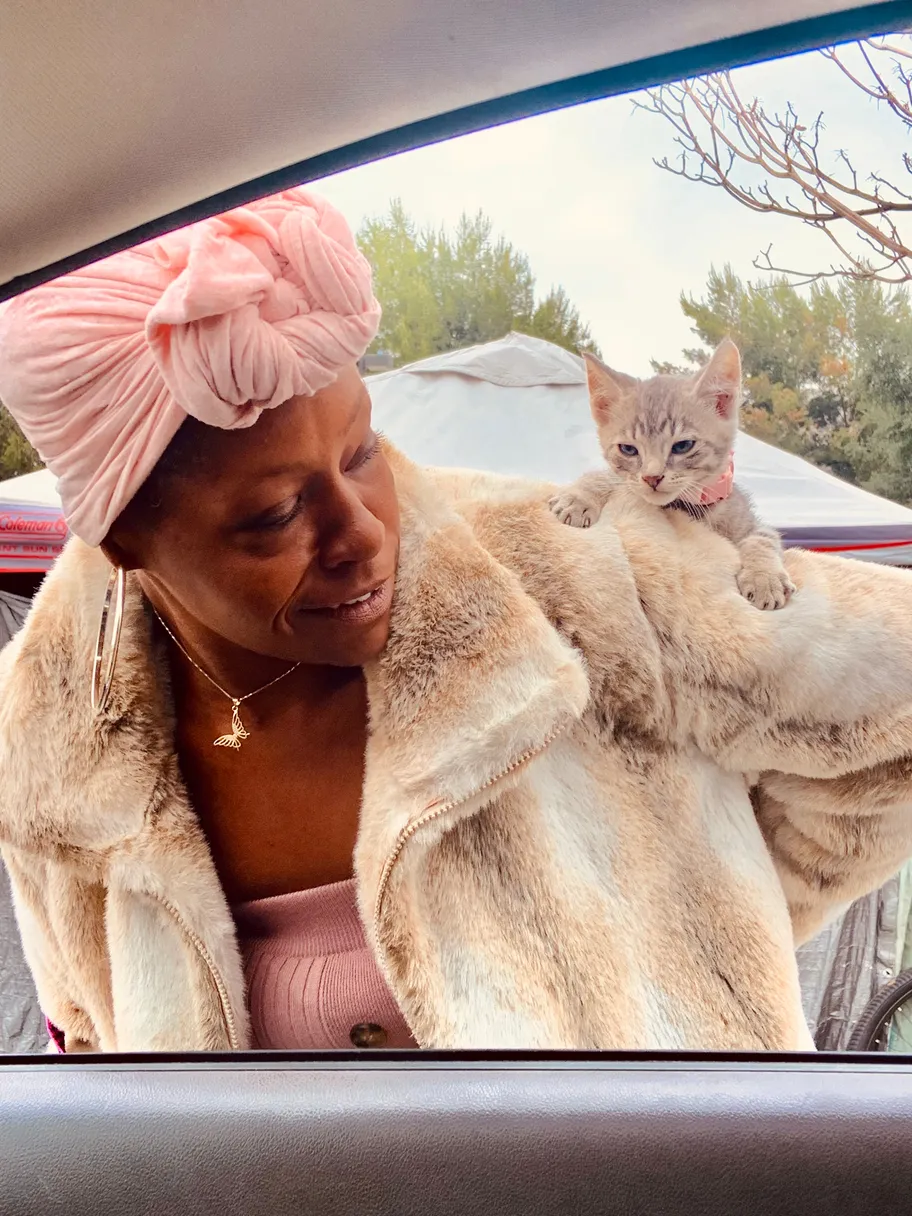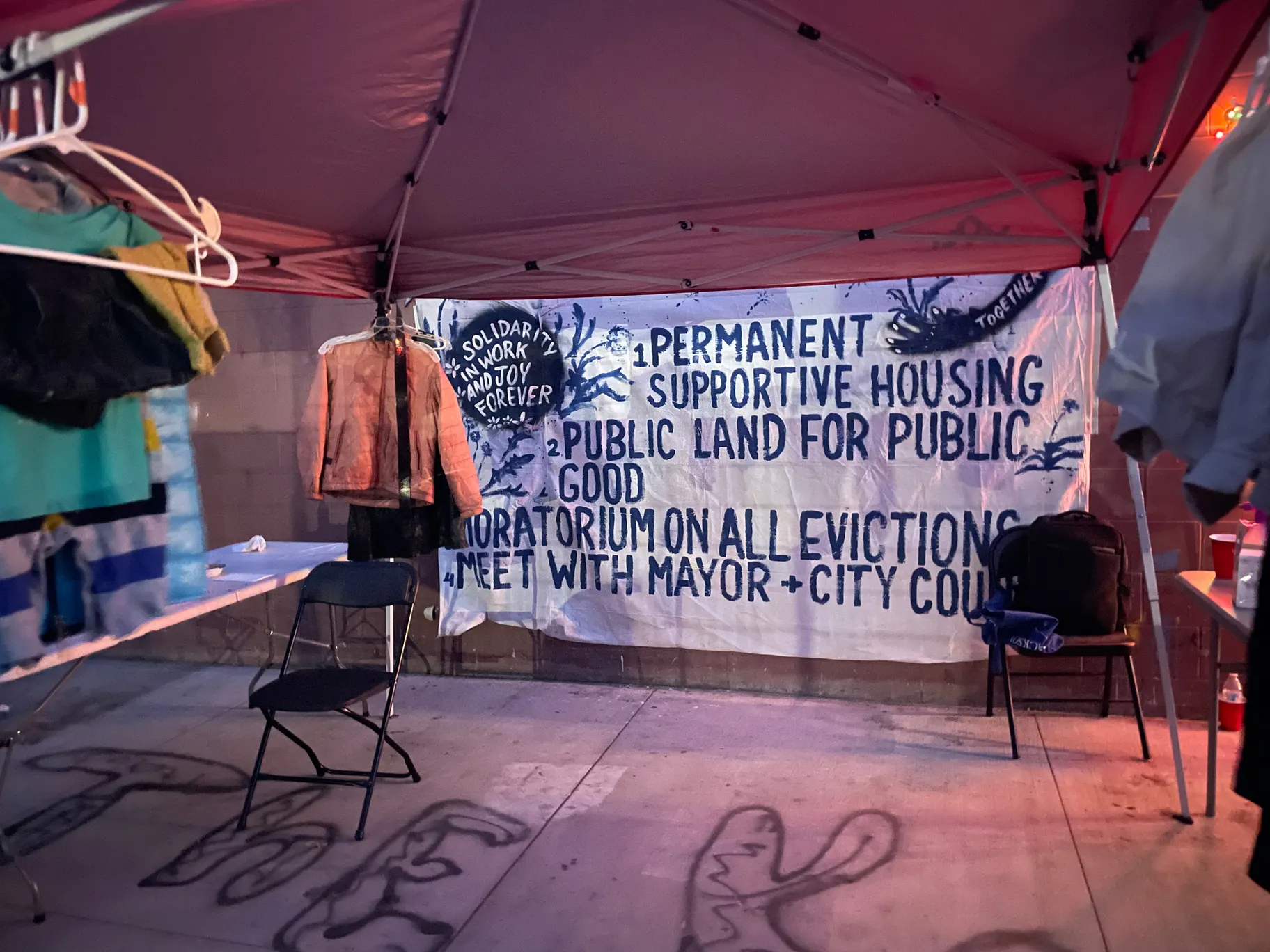For years, Aetna Street in Van Nuys was referred to as the “Skid Row of the Valley.” That’s because like Skid Row in Downtown LA, the little side street off the Metro orange bus line (now called the G line) was home to a large community of people living in tents, cars, and RVs.
Also like Skid Row, it became a hotbed for organizing. Three years ago, the Aetna Street Collective formed there with the goal of understanding and improving the conditions of the encampment’s residents.
The diverse group of activists, unhoused residents, and academics from UCLA have developed a tight-knit community, which shares resources and supplies, hosts community events, and even launched a paper to share the stories and experiences of unhoused residents.
“It's like Cheers, everybody knows each other. Everybody knows your name,” says Giselle “Gelly” Harell, who began living in a tent on Aetna Street after losing her job and home during the COVID pandemic. “We all kick it together. We eat together. We have good days together and we have bad days together.”

Giselle “Gelly” Harell began living on Aetna Street after losing her job and housing during the pandemic. She now organizes with the Aetna Street Collective. Photo courtesy of Carla Orendorff.
In partnership with UCLA’s Luskin Institute on Inequality and Democracy, the group has also helped produce original research about the real-world impacts public policy measures like encampment sweeps can have on unhoused residents.
“We studied the displacement that happened at Echo Park Lake, and followed about 100 people for one year. We found that more people died than were housed,” says Carla Orendorff, an organizer and researcher with the Aetna Street Collective. “This kind of research work couldn't happen without the knowledge and skills of other unhoused researchers.”
That’s because the residents at Aetna Street have had plenty of their own experiences with the city’s controversial cleanup efforts. Harrell says that on multiple occasions, she’s had important items, like her social security card and money, thrown out in these sweeps.
In the past, members of the Aetna Street Collective have spoken out against — and sometimes successfully blocked — these sweeps.

A sign lists some of the demands of Aetna Street residents. Photo courtesy of Carla Orendorff.
But last month, the encampment became the target of Karen Bass’ “Inside Safe” program, which aims to rapidly move people living in encampments indoors. The Aetna Street encampment was cleared completely, and the area was fenced off for good.
Harrell refused housing from the program because she was skeptical that it would be permanent. Others accepted placements at hotels. But she says the sweep has been detrimental to community members’ ability to support each other.
“Our regular outreach people who come deliver food … to do volunteer work, to bring clothes and shoes [are asking], ‘Oh, we don't know where everybody's at. Where's everybody? Where did they put you guys?’” she says. “We're displaced. Everybody’s scattered around.”
Some Aetna residents who did accept hotel placements have also reported dealing with sub-par conditions and strict rules — complaints that have been made by a number of other participants in the “Inside Safe” program.
But Orendorff says that even though the Aetna encampment is gone, the Aetna Street Collective will continue meeting every week and urging the city to do more.
One big demand they have is for public officials to provide written offers for housing in the future, so when sweeps like this happen, residents have a clearer idea of their options.
“The mayor has said she cannot honor that, she can't put things in writing,” says Orendorff. “And we question that, because if you can't put it in writing, what kind of offer is that?”
